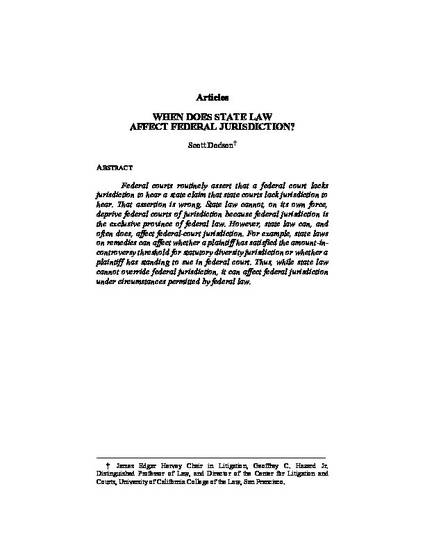
Article
When Does State Law Affect Federal Jurisdiction?
43 Review of Litigation 117
(2024)
Abstract
Federal courts routinely assert that a federal court lacks jurisdiction to hear a state claim that state courts lack jurisdiction to hear. That assertion is wrong. State law cannot, on its own force, deprive federal courts of jurisdiction because federal jurisdiction is the exclusive province of federal law. However, state law can, and often does, affect federal-court jurisdiction. For example, state laws on remedies can affect whether a plaintiff has satisfied the amount-incontroversy threshold for statutory diversity jurisdiction or whether a plaintiff has standing to sue in federal court. Thus, while state law cannot override federal jurisdiction, it can affect federal jurisdiction under circumstances permitted by federal law.
Keywords
- jurisdiction,
- ouster
Disciplines
Publication Date
2024
Citation Information
Scott Dodson. "When Does State Law Affect Federal Jurisdiction?" 43 Review of Litigation 117 (2024) Available at: http://works.bepress.com/scott_dodson/83/
